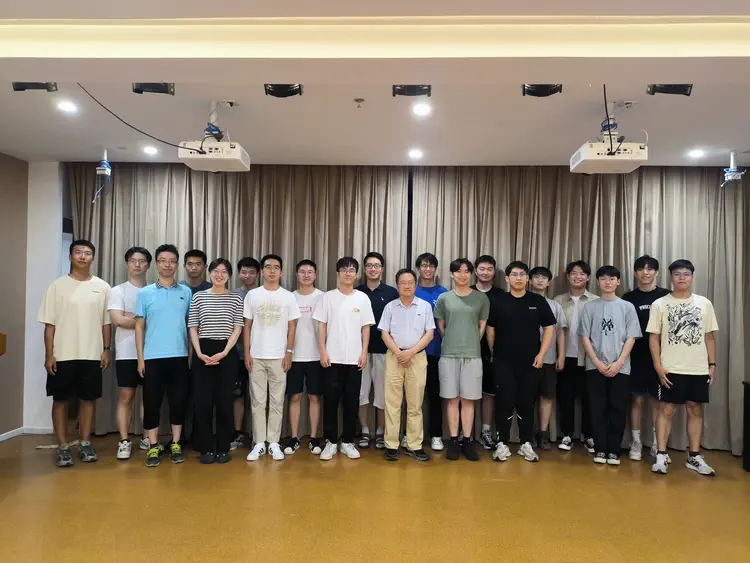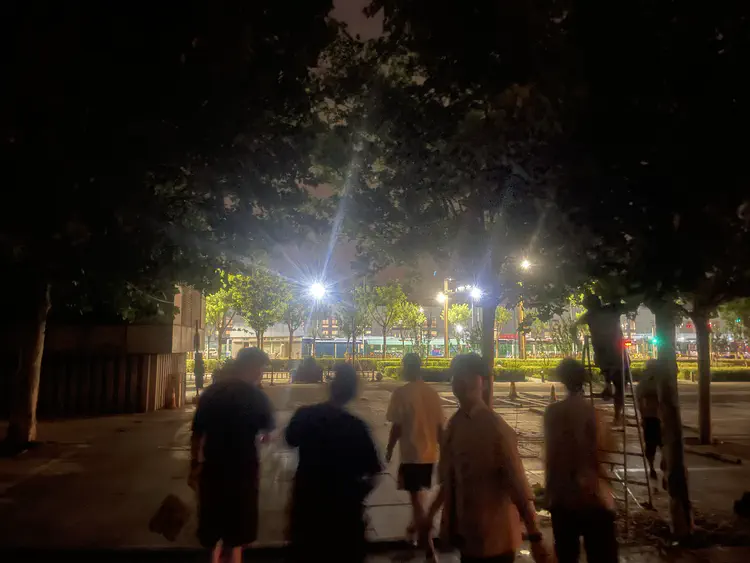PKUNLP-ICLER
👋 Hi, We are PKUNLP-ICLER !
We are an active research group at Peking University, led by Prof. Baobao Chang. Our research interests include a wide range of topics in Natural Language Processing (NLP), such as large language models, multi-modal learning, semantic parsing and so on. We are also interested in applying NLP techniques to solve real-world problems.
Baobao Chang
Associate Professor
Institute of Computational Linguistics
Department of Computer Science
Peking University
Baobao Chang
Chang, Baobao is an associate professor in the School of Computer Science. He obtained his B.Sc. from Shanxi University in 1992, and Ph.D. from Peking University in 1999 respectively. His research interests include Computational Linguistics, Chinese Language Resource Engineering, Chinese Segmentation, Syntactic and Semantic Parsing.
Dr. Chang has published over 70 high quality academic papers in international conferences and Journals, including top-tier conferences such as ACL, EMNLP, COLING, SIGIR and IJCAI. He has served in the Program Committee of various international conferences including ACL, EMNLP, COLING etc. He is co-authors of two text books and teaching courses on Computational Linguistics. As one of key contributors to the Comprehensive Language Knowledge Base (CLKB) project, he was awarded the Second Class National Scientific & Technical Progress Prize of China in 2011 and the First Class Scientific & Technical Progress Prize of Ministry of Education of China in 2007. He is vice director of the key laboratory of Computational Linguistics (Peking University), Ministry of Education, China and member of both CIPSC (Chinese Information Processing Society of China) and CAAI (Chinese Association for Artificial Intelligence). He is also serving on the editorial board of the Journal of Chinese Information Processing.
- Computational Linguistics
- Text Generation
- Information Extraction
Courses
Recent Publications
2024
- “MMICL: Empowering Vision-language Model with Multi-Modal In-Context Learning” is accepted to ICLR 2024.
2023
- “Can We Edit Factual Knowledge by In-Context Learning?” is accepted to EMNLP 2023.
- “Coarse-to-Fine Dual Encoders are Better Frame Identification Learners” is accepted to EMNLP 2023 Findings.
- “Guiding AMR Parsing with Reverse Graph Linearization” is accepted to EMNLP 2023 Findings.
- “Towards End-to-End Embodied Decision Making via Multi-modal Large Language Model: Explorations with GPT4-Vision and Beyond” is accepted to Foundatation Model for Decision Making workshop @NeurIPS 2023.
- “On the Pareto Front of Multilingual Neural Machine Translation” is accepted to NeurIPS 2023.
- “SANTA: Separate Strategies for Inaccurate and Incomplete Annotation Noise in Distantly-Supervised Named Entity Recognition” is accepted to ACL 2023 Findings.
- “On the off-target problem of zero-shot multilingual neural machine translation” is accepted to ACL 2023 Findings.
- “Query your model with definitions in FrameNet: an effective method for frame semantic role labeling” is accepted to AAAI 2023.
- “TABLEIE: Capturing the Interactions Among Sub-Tasks in Information Extraction via Double Tables” is accepted to ICASSP 2023.
2022
- “A Span-based Target-aware Relation Model for Frame-semantic Parsing” is accepted to ACM Transactions on Asian and Low-Resource Language Information Processing.
- “Generating, Reasoning & Ranking: Multitask Learning Framework for Math Word Problem Generation” is accepted to CCL 2022.
- “Knowledge-integrated Joint Model For Multi-target Frame Semantic Parsing” is accepted to CCL 2022.
- “A Two-Stage Method for Chinese AMR Parsing” wins the second prize at CAMRP-2022.
- “SCL-RAI: Span-based Contrastive Learning with Retrieval Augmented Inference for Unlabeled Entity Problem in NER” is accepted to COLING 2022
- “From dense to sparse: Contrastive pruning for better pre-trained language model compression” is accepted to AAAI 2022.
- “Mining Clues from Incomplete Utterance: A Query-enhanced Network for Incomplete Utterance Rewriting” is accepted to NAACL 2022.
- “A double-graph based framework for frame semantic parsing” is accepted to NAACL 2022.
- “A two-stream AMR-enhanced model for document-level event argument extraction” is accepted to NAACL 2022.
- “ATP: AMRize then parse! enhancing AMR parsing with PseudoAMRs” is accepted to NAACL Findings 2022.
- “S4-Tuning: A Simple Cross-lingual Sub-network Tuning Method-Tuning: A Simple Cross-lingual Sub-network Tuning Method” is accepted to ACL 2022.
- “Hierarchical curriculum learning for amr parsing” is accepted to ACL 2022.
- “Focus on the Target’s Vocabulary: Masked Label Smoothing for Machine Translation” is accepted to ACL 2022.
2021
- “Raise a child in large language model: Towards effective and generalizable fine-tuning” is accepted to EMNLP 2021.
- “Chinese word segmentation of medical text based on dual-encoder” is accepted to CCL 2021.
- “Document-level event extraction via heterogeneous graph-based interaction model with a tracker” is acceoted to ACL 2021.
- “Joint multi-decoder framework with hierarchical pointer network for frame semantic parsing” is accepted to ACL Findings 2021.
- “SIRE: Separate intra-and inter-sentential reasoning for document-level relation extraction” is accepted to ACL Findings 2021.
Full publications can be found at Google Scholar
Contact
- chbb [@] pku [dot] edu [dot] cn
- No.5 Yiheyuan Road, Haidian District, Beijing 100871

